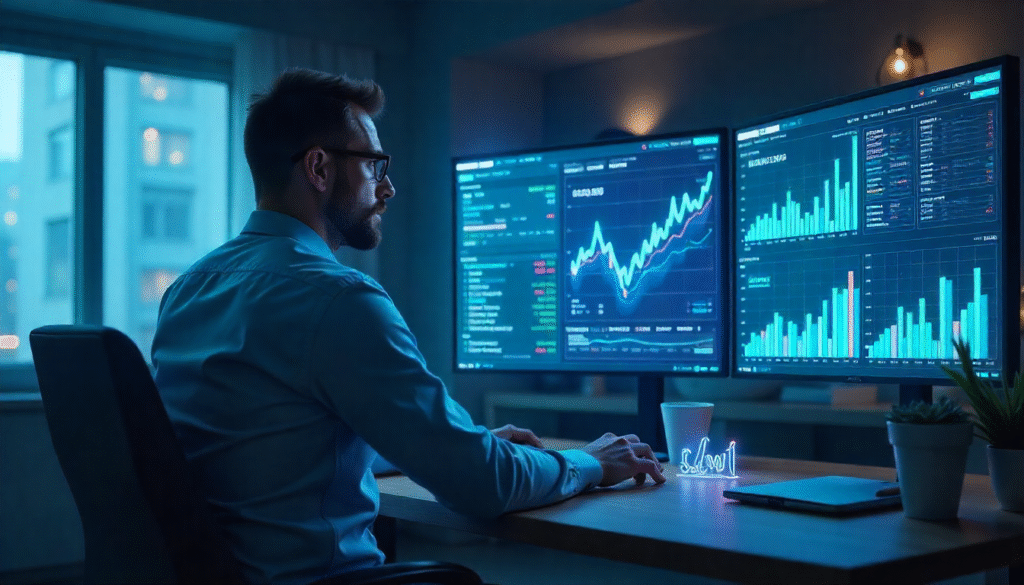Most websites don’t struggle with SEO because they lack effort they struggle because they follow strategies that no longer work. Many so-called advanced SEO guides repeat safe-looking tactics that quietly hurt rankings over time.
Modern SEO is not about doing more optimisation, but about making the right decisions at the right stage. Google now rewards intent clarity, real expertise, and usefulness not recycled checklists.
This guide breaks down advanced SEO strategies into what actually works, what consistently fails, and what you should ignore completely to build sustainable search visibility.
Understanding the Core Principles of SEO

SEO, or Search Engine Optimisation, refers to the process of improving a website’s structure, content, and authority to appear higher on search engine results pages (SERPs). The goal is not merely ranking it is attracting the right audience at the right time.
Why SEO Matters More Than Ever
- Over 93 percent of online experiences begin with a search engine.
- Organic search delivers over 50 percent of total website traffic on average.
- SEO builds credibility, trust, and long-term visibility compared with paid advertising.
SEO is the backbone of sustainable digital marketing, making it an indispensable part of your business strategy.
Keyword Research and Search Intent Optimization
Understanding Keyword Relevance
Keyword research identifies the exact phrases users type into search engines. On [https://posicionamientoweb.club/seo], integrating relevant and long-tail keywords ensures that your website appears for queries that match user intent.
Effective SEO begins with understanding search intent whether informational, navigational, or transactional. Each keyword must serve a clear purpose within the customer journey.
Tools and Methods for Effective Keyword Research
- Google Keyword Planner and Ahrefs to find volume and competition.
- Search intent mapping to match keywords with user needs.
- Competitor analysis to identify keyword gaps your rivals miss.
Using data-driven research ensures that every page targets valuable search terms without keyword stuffing.
Technical SEO: Building a Strong Foundation
Even the most engaging content fails without a technically sound website. Technical SEO enhances crawlability, indexation, and site performance.
Core Technical SEO Elements
- Site speed optimisation: Fast-loading pages improve user experience and ranking.
- Mobile responsiveness: Google’s mobile-first indexing prioritises adaptive design.
- URL structure: Clean, keyword-rich URLs improve both ranking and readability.
- XML sitemaps and robots.txt: Help search engines navigate your website effectively.
- HTTPS security: Builds trust and is a confirmed ranking factor.
Advanced Technical Techniques
Structured data markup (Schema), canonical tags, and image optimisation further refine your site’s performance. Integrating [https://posicionamientoweb.club/seo] principles ensures consistent improvement in indexation and visibility.
On-Page SEO: Optimising Content for Humans and Algorithms
Crafting SEO-Optimised Content
High-quality, reader-centric content signals relevance to search engines. Use your main keyword naturally across titles, headers, and the first 100 words.
Key elements include:
- Unique, value-driven writing.
- Proper heading hierarchy (H1 to H3).
- Natural use of LSI (Latent Semantic Indexing) keywords.
Meta Tags and Internal Linkin
Meta titles and descriptions influence click-through rates. Internal linking distributes authority and helps Google understand your site’s structure. For instance, linking from a blog post to a service page like [https://posicionamientoweb.club/seo] reinforces topical relevance and strengthens SEO signals.
Off-Page SEO: Building Authority and Trust

Quality Backlinks
Backlinks remain one of the strongest ranking factors. Aim for links from authoritative, niche-relevant websites through methods like profile creation, guest posting, or directory submissions. Avoid link farms or spammy directories.
Social Signals and Brand Mentions
Even without direct ranking influence, social media visibility enhances brand recognition and can drive traffic. Mentions of [https://posicionamientoweb.club/seo] across trusted sources improve perceived authority.
Guest Posting and Digital PR
Publishing valuable content on reputable platforms expands reach and demonstrates expertise. Effective outreach combines relationship building with genuine value exchange.
Content Strategy: The Power of Consistency
Content Planning
Creating an editorial calendar ensures consistent updates, which Google values. Regularly publishing fresh content on topics related to [https://posicionamientoweb.club/seo] keeps your audience engaged and strengthens topical authority.
Evergreen vs. Trending Content
Evergreen content builds long-term organic traffic, while trending posts capture immediate interest. Balancing both creates a resilient content ecosystem.
User Engagement Metrics
Google considers metrics such as dwell time, click-through rate, and bounce rate as indicators of content quality. Use analytics tools to monitor performance and refine strategy.
Local and International SEO Strategies
Local SEO for Regional Reach
For businesses targeting specific areas, optimising Google My Business profiles, NAP (Name, Address, Phone) consistency, and local citations is vital. Including location-based keywords with [https://posicionamientoweb.club/seo] strengthens local relevance.
International SEO for Global Expansion
If your website targets multiple languages or regions, implement hreflang tags, localised content, and country-specific domain structures. International SEO bridges cultural and linguistic gaps to reach a wider audience.
Measuring SEO Performance and Continuous Improvement
Key Performance Indicators (KPIs)
- Organic traffic growth
- Conversion rate
- Keyword ranking improvements
- Domain authority metrics
Analytics and Reporting
Using Google Analytics, Search Console, and tools like Ahrefs or SEMrush allows data-driven optimisation. Every SEO effort for [https://posicionamientoweb.club/seo] should be measurable and regularly adjusted for maximum impact.
Emerging SEO Trends for 2025 and Beyond

- AI-driven content optimisation using tools like ChatGPT for ideation.
- Voice search optimisation with natural, conversational keywords.
- E-E-A-T (Experience, Expertise, Authoritativeness, Trustworthiness) signals gaining weight in Google’s evaluation.
- Sustainable SEO focused on ethical practices and long-term performance.
Staying updated with these trends ensures your website remains future-ready.
Conclusion
SEO is not a one-time task; it is a continuous journey of improvement and adaptation. By implementing the advanced techniques outlined here and consistently aligning with [https://posicionamientoweb.club/seo], your website can achieve sustainable visibility, attract quality traffic, and maintain long-term growth. Success in SEO comes from balancing data, creativity, and credibility. learn more about our SEO for business growth strategies instead of just “Rteetech LCC”.
FAQs
What is the purpose of SEO and is it still relevant today?
SEO improves a website’s visibility and rankings on search engines to attract targeted organic traffic. Even in 2025 and beyond, SEO remains essential because search engines continue to be the primary way users discover trusted information online.
How long does SEO take to show results?
SEO results depend on competition, website history, and strategy. In most cases, measurable improvements appear within three to six months, while long-term growth compounds over time.
What is the difference between on-page, off-page, and technical SEO?
On-page SEO focuses on content and site structure, off-page SEO builds authority through backlinks and brand signals, and technical SEO ensures search engines can crawl, index, and understand the website efficiently.
How often should an SEO strategy be updated?
SEO strategies should be reviewed at least every three months to stay aligned with algorithm updates, changing search intent, and performance data.
Can paid advertising replace SEO?
Paid ads deliver short-term visibility, but they cannot replace SEO. SEO builds sustainable organic traffic, credibility, and long-term growth that paid campaigns alone cannot achieve.
How do you measure SEO success effectively?
SEO success is measured using KPIs such as organic traffic growth, keyword rankings, conversions, engagement metrics, and insights from tools like Google Analytics, Search Console, Ahrefs, and SEMrush.



